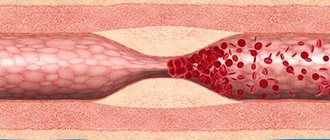Medical information is reliable Checked by Eremin Alexey Valentinovich
Psychopathy, or personality disorder, manifests itself in the form of persistent disturbances in character and behavior. They arise from birth or form in a child in early childhood and persist throughout the rest of his life. Such deviations lead to maladjustment in relationships with people. The pathology can be caused by many factors, but their significance varies for each patient. Treatment of psychopathy in Moscow is carried out at Dr. Isaev’s clinic by the best specialists.
Statistics say that approximately 10% of the world's population suffers from some degree of psychopathy. This is indicated by international studies conducted in many countries. Asthenic, hysterical and emotionally labile forms of the disease are more common in women, while other types are most typical for men. Often one patient has a combination of several personality disorders at the same time.
Psychopathy signs
Treatment of psychopathy should begin with a diagnosis. An experienced doctor first of all pays attention to the signs of this disease. The main symptoms of this disorder are:
- indifference to the feelings of others;
- rejection of social norms of behavior;
- failure to fulfill duties and requirements;
- the desire to fulfill one's desires, even through violence;
- difficulty in forming relationships with people;
- lack of feelings of guilt and analysis of mistakes;
- Blaming others for your failures.
Features of the manifestation and treatment of psychopathy depend on its type. According to one of the classifications, it is:
- asthenic;
- psychasthenic;
- schizoid;
- paranoid;
- epileptoid;
- cycloid;
- unstable;
- antisocial;
- psychopaths are constitutionally stupid.
Asthenic psychopathy
People with this deviation are characterized by increased shyness, indecisiveness, and poor adaptability to new conditions. They have a high sensitivity to mental stimuli and physical stress. Such individuals exhibit strong reactivity in response to the sight of blood, temperature changes, and tactlessness of people. They often have various problems in the functioning of the autonomic system and tend to focus on their sensations.
Psychasthenic
Treatment of psychopathy in psychasthenics using psychotherapy involves teaching patients normal self-esteem and gaining confidence. Such people manifest themselves with constant doubts. They are shy, but at the same time very proud and touchy. They love to engage in introspection, self-control, and adore abstract logical constructs that are not applicable in life. Any change in work, place of residence, and other aspects is accompanied by an increase in anxiety. They are very pedantic, disciplined and annoying. Psychasthenics cannot occupy management positions, but they can be excellent assistant managers.
Schizoid
Representatives of this disorder are characterized by high sensitivity towards themselves and their problems and absolute indifference to the misfortune of others. All actions of such a person are aimed at satisfying himself, but without the desire for fame or money (although there are exceptions). Schizoids are often people of art; in life they are called originals, eccentrics. They are persistent in achieving their goals and are ready to help starving children in Africa, but at the same time they will calmly look at the experiences of their own mother.
Paranoid
A feature of this change in personality is the formation of an extremely valuable idea in a person by the age of 20-25. These ideas are based (unlike delusional ones) on reality, but at the same time facts and events are assessed subjectively, based on their own point of view (jealousy, hypochondria, etc.) . Treatment of psychopathy in this case is not effective if only medication is used.
They are distinguished by rancor, touchiness, and a desire for self-affirmation. Their character traits often lead to conflict situations with others. They often fight for justice, which is expressed in the constant writing of complaints, going to authorities, and participating in court proceedings.
Epileptoid
Epileptoids are characterized by an explosive nature, anger and excitability. Their reaction often does not correspond to the strength of the irritation. But then they quickly move away and even regret their incontinence. They are difficult to get along with in the family and work collective, vindictive, pedantic and overly neat. At the same time, they exhibit sweetness, the ability to flatter, and the use of diminutive words in conversation.
Epileptoid psychopaths either love or hate; for them there is no moderation in feelings. But the peculiarities of their character and behavior haunt neither friends nor enemies. Some patients have a tendency to alcoholism, drugs, and vagrancy. Among people of this type there are often perverts, gamblers or murderers. Therefore, the treatment of mental disorders in these patients should be entrusted exclusively to experienced specialists.
Hysterical
Hysterical psychopathy manifests itself in the desire to certainly attract attention. With such a personality type, any effect designed to demonstrate appearance, emotions, and stories about one’s own unusual adventures is important. Some hysterics may attribute to themselves high-profile crimes that they did not actually commit. People of this type often play some role, imitating one or another personality.
When admitted to the hospital, treatment of psychopathy in a hysteroid becomes more difficult, since he can very reliably simulate the illnesses of his neighbors in the ward. It is also characterized by contradictory judgments, alternating sympathy and antipathy.
Cycloid psychopathy
Cycloids are divided into several groups. The first (hypothymic) are constantly in a sad mood, pessimistic, characterized by gloom and reluctance to communicate. They show diligence and accuracy in their work, but always expect failure. They are driven by a constant feeling of their own inferiority. In this case, in addition to general methods, treatment for depression may be required.
Hyperthymic cycloids, unlike hypothymic ones, are constantly in a state of animation, good mood, active and optimistic. They love communication and long conversations, full of different ideas. Negative traits of this type are a tendency towards adventurism and inconsistency. They often lie and do not fulfill obligations and promises. Emotionally unstable cycloids are constantly subject to mood swings. Such periods can last for hours, days and even weeks.
Unstable psychopathy
These people are constantly exposed to other people's influence. They are very suggestible, and their whole life is shaped by random circumstances. They are the ones who most often end up in a circle and become addicted to drugs and alcohol. At work they are unnecessary and undisciplined. They constantly need supervision and, in good conditions, can work normally and lead a healthy, active life. Treatment of psychopathy in Moscow for this group of people is easy due to their suggestibility. The main thing for a doctor in this situation is to become a significant person for his patient.
Antisocial
Antisocial psychopaths are characterized by moral defects. They do not feel their duty towards society and cannot feel affection for others. These people are indifferent to praise or blame and are unable to live peacefully with other people because they do not follow generally accepted rules. Many antisocial psychopaths torture animals as children and treat their parents with indifference.
Constitutionally stupid psychopaths
Unlike mental retardation and other children with congenital mental disabilities, constitutionally stupid psychopaths learn easily and get high grades. But in practice they are not able to apply their knowledge. They cannot take initiative, use patterns in conversation, are very suggestible, tend to obey the opinion of the majority and carefully follow fashion. They are conservative by nature and do not like innovation. They are distinguished by high self-esteem and often utter pompous, complex phrases that do not have any meaning.
Symptoms
Before determining whether a person is an explosive psychopath, you need to pay attention to the symptoms of all subtypes. Among them:
- Inconsistency between personal positions and behavior, manifested in affectivity, excitability, impulse control, processes of perception and thinking, attitudes towards others;
- The chronic nature of abnormal behavior that has been going on for some time and does not occur episodically;
- Abnormal behavior affects all areas of a person’s life, disrupting adaptation to personal and social situations;
- The first manifestations occur in childhood or adolescence and continue into adulthood;
- Susceptibility to personal distress (the body’s inability to adapt to stress at the stage of exhaustion);
- Deterioration in professional and social productivity.
Three of these criteria are sufficient to diagnose the disorder.
To be specifically defined as emotionally unstable personality disorder, the following symptoms must be present:
- Tendency to act impulsively, without considering the consequences, as well as instability of mood;
- Minimal planning ability;
- Affective outbursts, mainly angry, and new attacks of anger when outbursts are suppressed or condemned from the outside.
If all three symptoms are observed, then we can conclude that there is an emotionally unstable disorder.
It remains to be determined whether the disorder is impulsive or borderline. Epileptic psychopathy usually manifests itself through the following symptoms:
- Great emotional instability, lack of control over one’s impulsiveness;
- Outbursts of aggression, rage, anger, threatening or cruel towards others;
- Conflict, disputes, constant discontent;
- Grudge, stubbornness, sullenness, imperiousness;
- Tendency to hypocrisy, flattery, sweetness, and the use of diminutives in speech;
- Categorical, uncompromising;
- Tendency to abuse alcohol, drugs, vagrancy, gambling, and sometimes violence and murder.
Causes of psychopathy
Treatment of psychopathy requires understanding the causes of its occurrence. This personality disorder occurs as a result of improper formation of will and emotions. Many scientists are inclined to believe that this deviation should be considered not so much as a separate disease, but as a feature of severe character traits due to pathology of the nervous system. The reasons may be:
- birth injury;
- difficult pregnancy;
- hereditary predisposition;
- alcoholism or drug addiction of parents at the time of conception and gestation;
- physical, mental or sexual abuse;
- encephalitis suffered at an early age.
The formation of a psychopathic personality is facilitated by two extremes in education. The first option is when a child in the family feels like a king. All his whims and desires are fulfilled, he is not given independence and the opportunity to take responsibility for something. Character pathology also occurs in a family where a son or daughter is constantly scolded, humiliated, mocked, and their shortcomings are constantly emphasized.
Total information
From the outside it may seem that a person with epileptoid type psychopathy “only” has a bad character, he was poorly raised, and he does not want to coexist normally with other members of society. There is some truth in this - the disorder is formed under the influence of many factors, including due to improper upbringing. But a bad character can be corrected without the intervention of specialists, meanwhile, an epileptoid psychopath will need medical help.
Some clinicians consider epileptic psychopathy not a disease, but a variant of the norm. In psychology and psychiatry, it is believed that for a verdict “he is sick” it is necessary to constantly observe a number of clearly defined symptoms, meanwhile, epileptic psychopaths often behave without any peculiarities. In any case, they will need the help of a specialist, since without his intervention, gross personality disorders of a person may manifest themselves, because of which his environment suffers. In our center we provide such assistance - deviation interferes with a comfortable life.
Treatment of psychopathy in men
In men, treatment for psychopathy is carried out in the same way as in women. But it should be understood that this deviation has special manifestations in the stronger sex. Love and empathy are not characteristic of these individuals, but to get what they want, they can play with feelings and use others. Those who find themselves in close relationships with them often suffer and receive psychological trauma.
Quite often, treatment of psychopathy in men has to be carried out forcibly, by court order, since almost not a single patient admits to his problems and is considered to be completely healthy. Therefore, it is important for relatives to talk to the person and convince him to undergo therapy. Doctors have not yet come up with a way to influence the cause and pathogenesis of the deviation. But some improvement in character, adaptation and family relationships can be achieved with the help of sedatives and work with a psychotherapist. This type of treatment for personality disorder requires a sufficient number of sessions to achieve a positive result.
Treatment of psychopathy in women
Treatment of psychopathy in Moscow for women at Dr. Isaev’s clinic involves using an integrated approach using medications. They are usually recommended to eliminate angry outbursts and relieve depression if the patient is in the stage of decompensation. In mild cases, you can get by with psychotherapy alone; cognitive-behavioral therapy is chosen; it allows you to analyze the wrong attitude towards events and people, and change your reaction to stressful and ordinary situations.
The following drugs are used:
- neuroleptics;
- behavior correctors;
- tranquilizers;
- antidepressants (most often serotonin reuptake inhibitors).
A friendly atmosphere is created around the patient, occupational therapy is provided and assistance is provided for social adaptation. Sometimes hypnosis and auto-training, ordinary conversations, and family therapy are used to improve relationships with loved ones.
Preventive and therapeutic methods
The compensatory stage of the psychopathic state does not require any therapeutic measures. Much more important is to identify disturbing factors in childhood and adolescence. To do this, parents must raise their child correctly from a moral point of view with the presence of certain prohibitions, avoiding permissiveness.
If we talk about the use of medications, they are used depending on the pathological reactions that most often occur in patients. If a person is emotionally inadequate, then they are treated with antidepressants; hysterics and angry manifestations in behavior are amenable to the influence of antipsychotics. Significant deviations in behavior are corrected with the appropriate sonapax and neuleptil.
Preparations with a mild stimulating effect on a plant basis are used, for example, Chinese lemongrass, Leuzea, ginseng, lure, eleutherococcus. To determine the appropriate treatment method, it is worth trying to take the epileptoid psychopath to a doctor. With timely use of medications, the prognosis for the course of the disease is determined to be favorable.
Treatment of epileptoid psychopathy
Treatment of psychopathy in epileptoids consists of an individual approach to each patient and the use of all modern methods of providing assistance. As with other personality disorders, medications are used in combination with psychotherapy techniques. It can be in the form:
- gathering a group of people with similar problems;
- individual conversations with a specialist;
- working with relatives.
A person learns to manage his emotions, especially anger, and communicate with loved ones and strangers. Permanent employment is a prerequisite for this type of psychopathy; without this, the patient’s condition worsens significantly.
The prognosis for this disease is more favorable if the attacks are caused by negative experiences. In this case, treating stress along with cognitive behavioral psychotherapy will help. The work of an experienced specialist will help achieve good results, and it is possible to achieve depsychotization.









